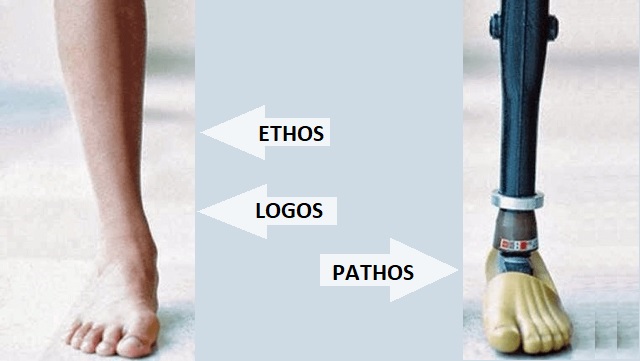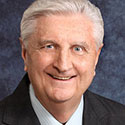It’s Time to Bring Ethos & Logos Back to the School House & Public Square
By Dr. Rich Swier

Logos: The Word of God, or principle of divine reason and creative order, identified in the Gospel of John with the second person of the Trinity incarnate in Jesus Christ. In Jungian psychology the principle of reason and judgment, associated with the animus.
Ethos: The characteristic spirit of a culture, era, or community as manifested in its beliefs and aspirations.
First Amendment to the U.S. Constitution: Congress shall make no law respecting an establishment of religion, or prohibiting the free exercise thereof; or abridging the freedom of speech, or of the press; or the right of the people peaceably to assemble, and to petition the Government for a redress of grievances.
In 1962 the U.S. Supreme Court in Engel v. Vitale, 370 U.S. 421, ruled that it is unconstitutional for state officials to compose an official school prayer and encourage its recitation in public schools, due to violation of the First Amendment.
This decision was not made based upon the wording of the First Amendment to the U.S. Constitution, a.k.a. the Establishment Clause. Justice Potter Stewart, in his dissent, argued,
“[T]he Establishment Clause was only meant to prohibit the establishment of a state-sponsored church, such as the Church of England, and not prohibit all types of government involvement with religion. In particular, he found that the nondenominational nature of the prayer and the ‘absentee’ provision removed constitutional challenges.”
Before Engel v. Vitale, 370 U.S. 421 in United States law, the Establishment Clause of the First Amendment to the United States Constitution, together with that Amendment’s Free Exercise Clause, form the fundamental and inalienable constitutional right of freedom of religion.
Since Engel v. Vitale, 370 U.S. 421 we have witnessed the following:
- Logos removed from all public, private and charter school curriculum.
- Removal of prayer from the school house to the White House.
- The infusion of atheism into the school house.
- The teaching and grooming of children for underaged sex.
- The replacement of Ethos and Logos with Pathos.
Pathos appeals to the emotions of the audience and elicits feelings that may already reside in them or have been pushed upon them using propaganda. Pathos is a used most often in rhetoric, as well as in literature, film and other narrative art. Today we see pathos used by Hollywood to push certain political agendas rather than tell stories based upon logos and ethos.
Today emotion overrules logic and asperations.
If you don’t believe us then just look at the outbursts by politicians and others the day Roe v. Wade was nullified.
Pathos examples in everyday life today includes:
- Denying the scientific fact that there’s only two genders: Male or XX and Female or XY.
- Believing that one can choose their personal pronouns.
- Believing that government, not God, is supreme.
- Believing that Communism is good and capitalism is evil.
- Believing that religion is the opiate of the masses.
- Believing that underaged sex with adult pederasts and pedophiles is permissible.
- Not believing in truth, facts and science but rather in emotions better prepares one for life.
- Believing that we must do everything to save the planet from climate change no matter how much doing so harms mankind.
The Bottom Line
As George Orwell wrote:
Nazi theory indeed specifically denies that such a thing as “the truth” exists. … The implied objective of this line of thought is a nightmare world in which the Leader, or some ruling clique, controls not only the future but the past. If the Leader says of such and such an event, “It never happened”—well, it never happened. If he says that two and two are five—well, two and two are five. This prospect frightens me much more than bombs.
In his book The Road to Serfdom, Austrian economist, legal theorist and philosopher who is best known for his defense of classical liberalism Friedrich August von Hayek wrote,
The most effective way of making everybody serve the single system of ends toward which the social plan is directed is to make everybody believe in those ends. To make a totalitarian system function efficiently, it is not enough that everybody should be forced to work for the same ends. It is essential that the people should come to regard them as their own ends.
[ … ]
If all the sources of current information are effectively under one single control, it is no longer a question of merely persuading the people of this or that. The skillful propagandist then has power to mold their minds in any direction he chooses, and even the most intelligent and independent people cannot entirely escape that influence if they are long isolated from all other sources of information.
We wrote that it is time for the U.S. Supreme Court to reconsider Obergefell v. Hodges, 576 U.S. 644 decided on June 26th, 2015 and mandated gay marriage recognition nationwide and Lawrence v. Texas the June 26th, 2003 in which the Supreme Court ruled that sanctions of criminal punishment for those who commit sodomy are unconstitutional.
Today we believe that the Supreme Court should also reconsider, and ultimately overturn, Engel v. Vitale, 370 U.S. 421. By doing so it will restore ethos and logos to the school house and create a culture and society that our Founding Fathers envision when they wrote the First Amendment.
William O. Douglas during a speech to the Author’s Guild Council in New York, on receiving the 1951 Lauterbach Award said,
“Restriction of free thought and free speech is the most dangerous of all subversions. It is the one un-American act that could most easily defeat us.”
There is a reason that the First Amendment begins with the words, “Congress shall make no law respecting an establishment of religion, or prohibiting the free exercise thereof…”
Without freedom of religion there is no freedom of thought or speech. To take religion out of the class room is taking away an understanding of the roots of free speech. America was founded as a Judeo-Christian nation. That is why the Constitution begins with,
We the People of the United States, in order to form a more perfect union, establish justice, insure domestic tranquility, provide for the common defense, promote the general welfare, and secure the blessings of liberty to ourselves and our posterity, do ordain and establish this Constitution for the United States of America.
Amen!
©Dr. Rich Swier. All rights reserved.
RELATED ARTICLES:
One Prominent Libertarian Explains Why Unschooling Is the Best Way to Educate Kids
Pennsylvania Drag Queen Arrested and Charged With Possessing Child Pornography

This article is courtesy of DrRichSwier.com, an online community of citizen journalists, academics, subject matter experts, and activists to express the principles of limited government and personal liberty to the public, to policy makers, and to political activists. Please visit DrRichSwier.com for more great content.

